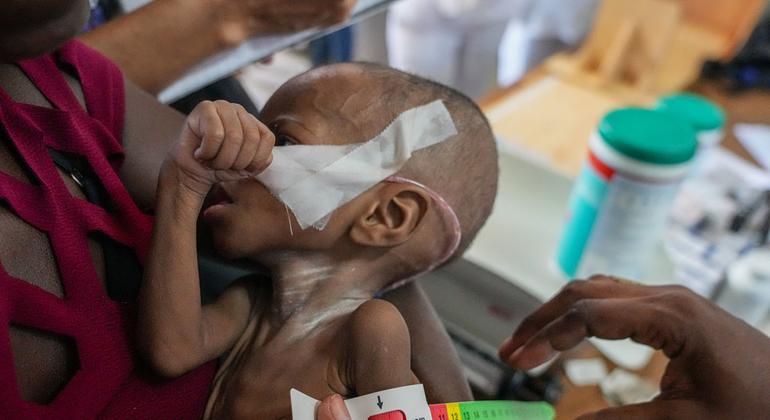The World Health Organization (WHO) has issued a serious warning about the growing global health crisis, driven by conflicts, climate change, epidemics, and forced displacement. In a recent statement, it is estimated that by the year 2025, 305 million people will require urgent humanitarian assistance. To address this alarming situation, the WHO has requested $1.5 billion for health interventions in various regions of the world.
WHO Director-General Tedros Adhanom Ghebreyesus emphasized that the organization is currently facing 42 active health emergencies, 17 of which are classified as level 3, requiring an extreme response. The pressure on health systems is overwhelming and global financial resources are decreasing, making the situation even more critical.
Tedros highlighted that current challenges, such as armed conflicts, epidemic outbreaks, and climate-related disasters, are interconnected in unprecedented ways. “These issues are no longer isolated incidents, but overlap and intensify,” he stated. The WHO not only plans to provide emergency care but also to empower communities to protect themselves and establish a legacy of health preparedness.
The organization has a clear plan: focus on essential healthcare, treat malnutrition, improve maternal and child health, vaccinate to prevent disease outbreaks, and provide mental health care in conflict-affected populations. The current reality indicates that climate change, along with conflicts and epidemics, fuel deeper crises, dramatically increasing the disparity between needs and available resources.
During the press conference, particular concern was raised about the H5N1 avian influenza virus, which has shown a significant increase in reported cases globally. In 2024, the United States reported 66 cases, and other countries like Cambodia and Vietnam have also recorded infections. To date, two cases have been reported in 2025, one of which was fatal, leading Tedros to express concern about the virus’s ability to mutate and mix with other strains, increasing the risk of human transmission.
On the other hand, the director-general emphasized the urgent need to raise awareness about cervical cancer, the fourth most common cancer among women worldwide, with 660,000 new cases and 350,000 annual deaths. “Eliminating cervical cancer is within reach,” he asserted, emphasizing that this type of cancer is preventable and treatable if detected early.
Finally, the WHO has redoubled efforts to assist the population in Gaza, mobilizing critical supplies following a recent ceasefire. Rik Peeperkorn, WHO representative for the Occupied Palestinian Territories, called for the removal of political obstacles hindering aid delivery and urged member countries and donors to provide flexible financing to address the most urgent needs. The international community faces an unprecedented challenge, and the time to act is now.
Source: MiMub in Spanish
